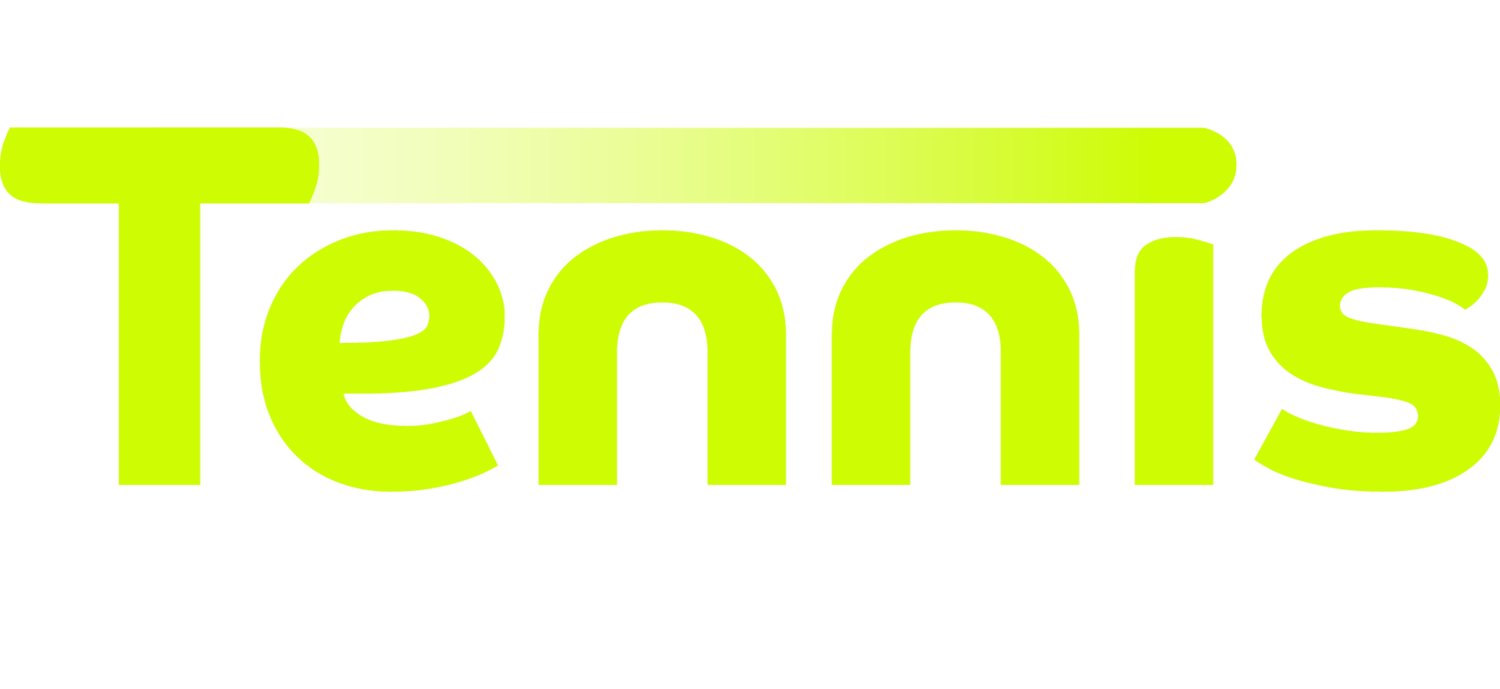The US Open Changed My Life
/I'm on a plane over the Atlantic on route to New York to cover my 15th US Open for BBC Radio 5 Live.
In spite of its irritations - elevators that don't work, only two indoor temperature settings (Sahara and Arctic), and food that rarely provides even one of your recommended five-a-day, it is probably my favourite Grand Slam tournament. Brash, electric, rowdy, fun.
And, if it were not for the US Open, probably I would not be working in tennis at all...
It is September 1991.
I am a 17-year-old slob. Directionless, awkward, lazy and halfway to spectacularly failing my A-level examinations. My Geography teacher has suggested that I leave his class and pursue other interests. My Head-of-Year has politely informed me that I am "a waste of space". I do not exercise, my main hobby is to follow the underwhelming results of my favourite football team - West Bromwich Albion, and I eat a lot of crisps (potato chips).
Tennis? That's something that happens for 4 weeks of the year when BBC TV screens the French Open finals, Queen's and Wimbledon. It then disappears from terrestrial television for 11 months, and I go back to watching football and eating crisps on the sofa. My parents disapprove of my attitude, but decide to let me learn from my own mistakes.
One weekend lunch-time, My Dad arrives home in a state of excitement. "I've bought a satellite dish!" he beams. My sister shrugs. My mother looks at him blankly. Not me. I know what this means - the arrival of a whole new world.
Over an 8-hour period we set it up, one of us moving the dish while the other sits in front of the TV shouting "bit more to the left, bit more, BIT MORE. YES! YEESS!! STOP THERE! A CHANNEL CALLED EUROSPORT JUST CAME ON! It's gone again..."
For the next week we watch everything. Films that have never been near cinema-release, a new cartoon called The Simpsons, and as much World Wrestling Federation as we can fit into waking hours. I tell my Dad that some people think WWF isn't real - that the results are pre-determined. We shake our heads in disgust. Perhaps not for the same reason.
It's late. Dad goes to bed, leaving me channel-hopping. I land on Sky Sports, where a massive stadium full of people are going bananas about a tennis match. Wimbledon finished months ago. So what's this?
Jimmy Connors, US Open 1991 (Getty Images)
Jimmy Connors serves, volleys, fist-pumps. The crowd react as if he has scored the winning goal in an FA Cup final, or held the winning touchdown pass in the Super Bowl. He is playing Aaron Krickstein. I've never heard of him. If you haven't done well at Wimbledon, you don't exist in Britain, and the best Krickstein had ever done was to reach Round 4.
I grew up watching Connors at Wimbledon though, celebrating with my mother when he won his five-set 1982 final against John McEnroe. Mom loved Connors' fist-pumps. She hated "that awful McEnroe".
Connors, we were told by Gerry Williams (the Sky commentator that would become my hero) is now 39 years old. Connors confirms this fact when he complains to the umpire about an overrule. "I'm out here busting my butt at 39 years old and you're doing that?!" he says. His behaviour is abominable. The crowd love it. I love it.
He wins the 2nd set to level amid delirium, loses the 3rd ('tanks', in the view of Gerry Williams, in order to have a breather), and then roars back to win the most extraordinary sporting contest I have ever seen in the 4th and 5th sets.
Sky's coverage comes to a close. It is now the middle of the night in the UK. I sit there in darkness, in silence, reliving the scenes I have just witnessed, suddenly knowing what I want to do with my life. I want to watch tennis all day rather than having a real job. I want to tell people about what I am watching. I want to be Gerry Williams. I want to be a tennis commentator.
US Open 2012. David interviewing Jimmy Connors for BBC Radio 5 Live.










